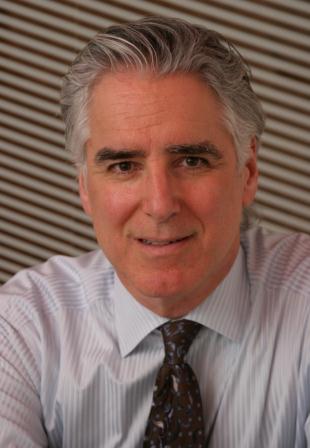
In broad, simplest terms, the candidates — and by extension, the rest of us — are not accounting for the hurricane-force transition from an industrial economy to an information economy. In fact, this transition is well underway and is not just something that’s years in the future. Lost industrial and manufacturing jobs are gone. G-O-N-E. They are not coming back.
Baby Boomers like me — and maybe you, too — have been caught in the middle of this transition. We started our careers at what seemed to be the height of the industrial age. If we wanted them, our fathers’ jobs were there for us. If we didn’t, there were plenty of other companies and occupations in which to build long careers that would inevitably lead to nice pensions and happy retirements.
But even early in our careers, we started to see that reality (dream?) crumble. It started in the steel industry in the late ‘70s, and without rehashing the economic history, the denouement was the Great Recession in 2008. The loss of manufacturing jobs is only part of the story. Lots of other occupations and jobs have simply disappeared. They have not been stolen away by lands of faraway cheap labor. They have been disrupted out of existence. I can speak from experience about the disappearance of newspaper jobs. A slew of middle-management jobs across all industries have been squeezed out of existence. Were you a travel agent? Buh-bye. Librarian? I’ll Google that. Bank teller? Hell, I don’t even use an ATM anymore. Equipment operator? Can you say “robot?” Postal worker? Can I give you my email address? (Oh, and my Amazon drone should be here any minute.) Printing press operator? See “newspaper jobs” above, and if you really need a hard copy of this article, just use your home printer.
Need more evidence that the transition is well underway? Let’s take a quick look at the largest publicly traded U.S. companies (according to Forbes):
Berkshire Hathaway: This is a company that makes money by owning other companies that make money (admittedly, some are manufacturers).
JPMorgan Chase: Bank, financial services.
Wells Fargo: Bank, financial services.
Apple: Maker of smartphones, computers and software.
ExxonMobil: Energy and chemicals.
Bank of America: Bank, financial services.
AT&T: Communications.
Citigroup: Bank, financial services.
Verizon: Communications.
Microsoft and Google are 11th and 12th, respectively, and if you’re wondering about car makers, Ford ranks 17th and General Motors ranks 20th.
The Information Age has arrived, and it has brought with it all sorts of changes in how we work, our relationships with employers and how we plan for second half of our lives.
I’ve got high school classmates who’ve worked their entire lives for the same company and who are either retired or expecting to retire in another couple of years. Without taking anything away from their lifetimes of hard work, some would call them the lucky ones.
But to call them “lucky” is Industrial Age thinking. Just like it’s Industrial Age thinking to bemoan the circumstances of so many others in the later stages of their careers who have found themselves downsized, working for half of what they used to make and drifting in career and financial uncertainty. It’s the same thinking that drives debates and conversations about jobs lost to cheap-labor countries, and it’s outdated.
Instead, the conversation needs to focus on teaching people — at any stage of life — to be more entrepreneurial. I don’t mean that everybody needs to learn how to start a new business every two years or how to win in the “Shark Tank.” Being entrepreneurial means learning to sell what you can do or what you can make to anyone who needs it. Being entrepreneurial means taking more responsibility for your financial well-being instead of relying on someone who may or may not decide to continue employing you from week to week.
Being entrepreneurial means that you should have a side hustle, something that generates income untethered to anything but your own time and hard work. Being entrepreneurial means taking advantage of your career circumstances — whatever they are — and making something new for yourself.
The presidential candidates are using our familiarity and comfort with the industrial economy that molded the Baby Boomer generation. We miss it. It was comfortable. I visited Ukraine in 2001, a decade after the end of the Soviet Union. At the time, Ukrainians faced a great deal of political and economic uncertainty. Despite the political oppression of the communists, people missed the “Soviet Times.” Under Soviet rule, they had jobs. They had places to live. They had enough food. In 21st century America, many of us feel the same way about the industrial economy.
But the Industrial Age is gone, and all of the institutions that supported it are either broken or have gone, too. Get out of the time warp. Shed your Industrial Age thinking and look ahead. That’s my plan. I figure I’m experienced enough to be aware of some of the obstacles I fact and still young enough get up after I trip on the ones I don’t see.

